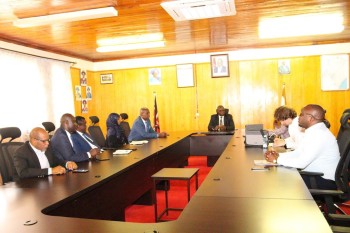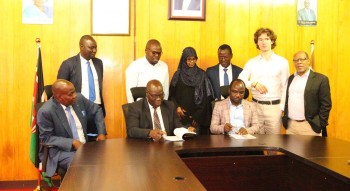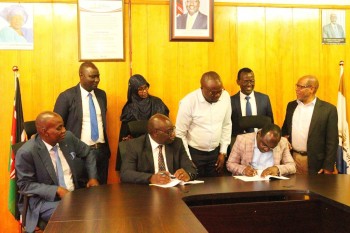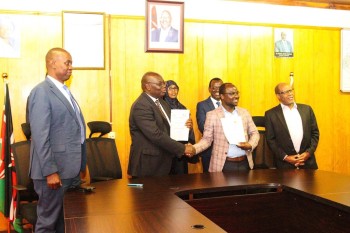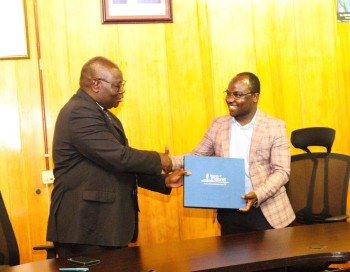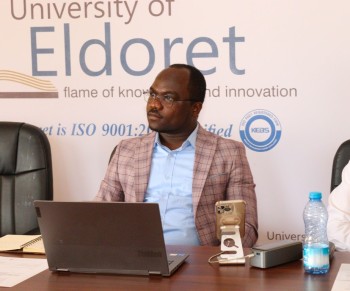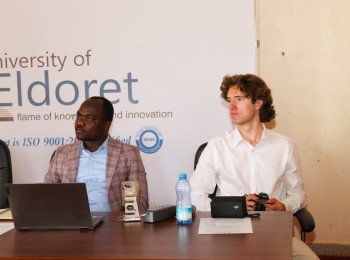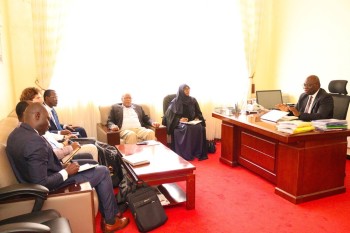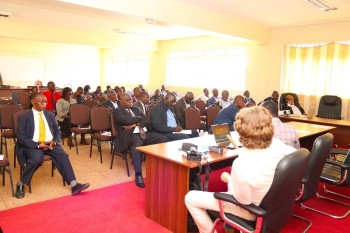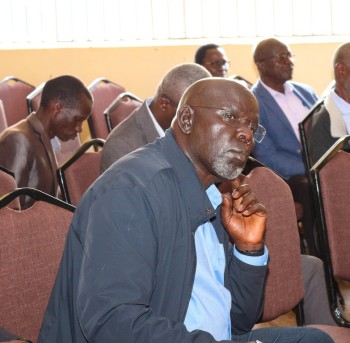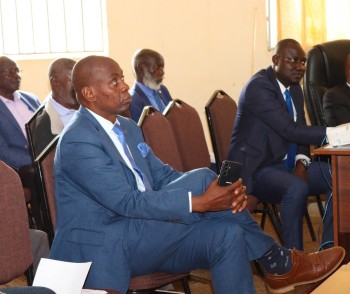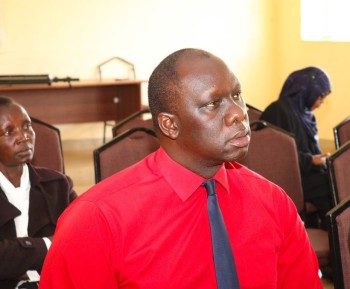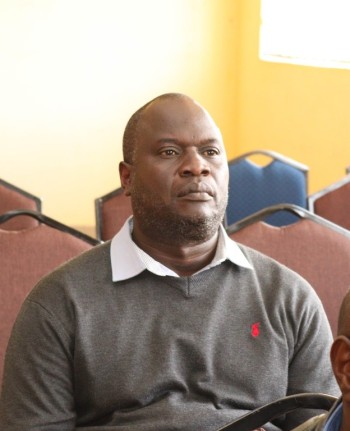On 28th July, 2025, University of Eldoret held its xxth public lecture on the future of higher education and its financing. This was delivered by Dr. Dieter Dohmen, the CEO and Managing Director of FiBS Afrique Ltd.
The public lecture covered among other things trends shaping higher education, funding of higher education, and equally examined innovative university funding options.
Universities exist to facilitate national development by generating knowledge, fostering innovation, and producing appropriate skilled human capital. We accomplish this through opening up space for access to equip individuals with technical, intellectual and transferable skills needed in driving economic growth, social progress and technological advancement. We have a reservoir of professionals whose work through research and innovations provide solutions to some of the national challenges the world faces.
Universities continue to facilitate social mobility bringing about social equality where access to education is measured along inclusive metrics. This is identified as a better way of reducing inequality and empowering citizens to engage in national development. In Africa, as is the case globally, universities are still seen as vital entities in addressing local problems associated with the youth bulge and unemployment and climate change.
Dr. Dohmen argued that globally, the future of living and working will be very different, though still very heterogeneous. This will be across many sectors including education, agriculture, and employment, among others. The emerging digitalisation & AI will shape all areas of life and demand new competencies and re-arranged working processes. He further noted that gaps between urban and rural areas will even be widened more.
In demonstrating the need for appropriate changes in higher education, Dr. Dohmen observed that today’s university students will be of working age till the year 2065-2070 and live almost till year 2100. Primary school going children will be of working age till the years 2075-2085 and live beyond year 2100.
In Kenya, the young population are estimated to grow by 25% till 2040, calling for more public funding for school education. The number of university going students is expected to increase from 860,000 to 1.3M, if not even more. Public budgets are unlikely to be able to cope with such increased demands in education.
The emerging changes affect higher education. For instance, demand for learning and preferred platforms might not necessarily be the same. For instance, modular learning is likely to become more common than today and other learning formats will play a much bigger role than what we see today, recognition of prior learning will become more important than it is today, and overhead costs for such activities are likely to increase substantially. Consequently, universities will have to become more flexible to be responsive to individual competencies and skills of students.
As higher education grows so will challenges emerge particularly relating to the funding of higher education. Public budgets are very constrained because of limited public revenues; very high level of public debt, high youth unemployment. Therefore investments are needed in public infrastructure; public education from early to higher education (pledge of free primary & secondary education); and future-oriented research & development. Therefore, new sources of funding including private higher education funding might become common. Introduction of newer higher education financing models such as loan mortgage, fundraising and sponsoring, temporary graduate tax, and income contingent loan among others are viable options that can be weighed against the disadvantage that might arise in their adoption. It would also be possible to consider higher education investment fund where corporates, companies, private households, life insurance, and foundations commit resources that are utilized in funding of higher education.

